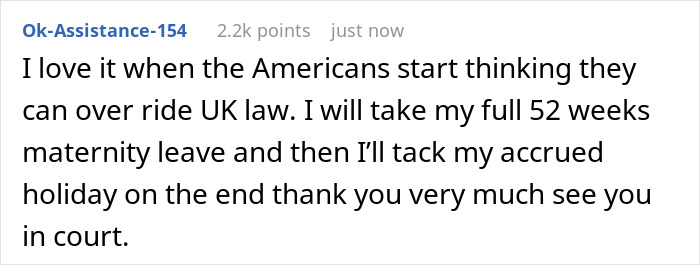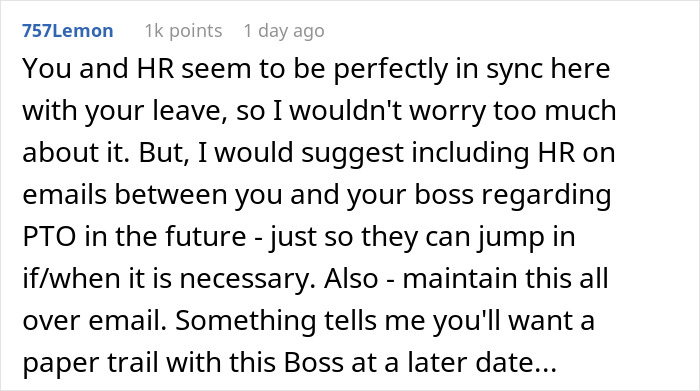Motivating your employees is difficult, but demotivating them is fairly easy. Two of the signs of a truly great boss are that they’ll treat you with respect and honor their agreements with you. Bad bosses, on the other hand, will try to micromanage you, shame you for having a life outside of work, and for taking time off.
Internet user u/FMLitsSML went massively viral on the Mildly Infuriating online group after sharing how her new boss had a problem with her taking a lot of time off, as mandated by her work contract, and reported her to human resources. Scroll down to read how things turned out, and to see how the internet reacted to such an unjust situation. Bored Panda has gotten in touch with the author of the post, and we’ll update the article as soon as we hear back from her.
Unfortunately, some bosses don’t understand the value of work-life balance and get upset when their staff go on vacation

Image credits: Drazen Zigic (not the actual photo)
An employee opened up about how taking paid time off resulted in her new boss reporting her to human resources
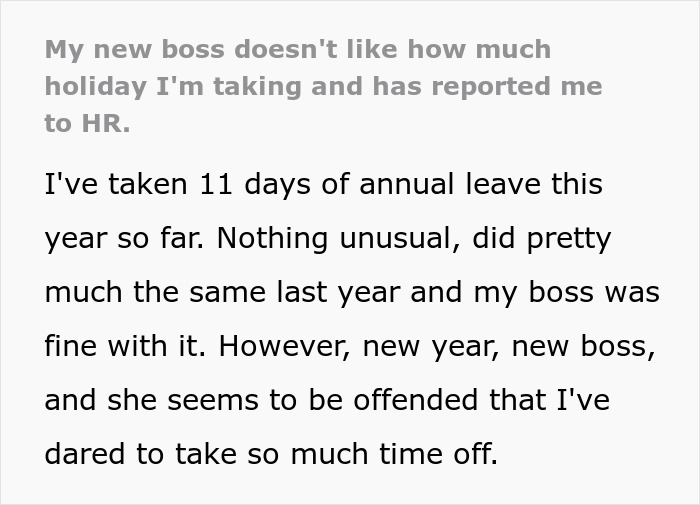



Image credits: DC Studio (not the actual photo)




Image credits: freepik (not the actual photo)
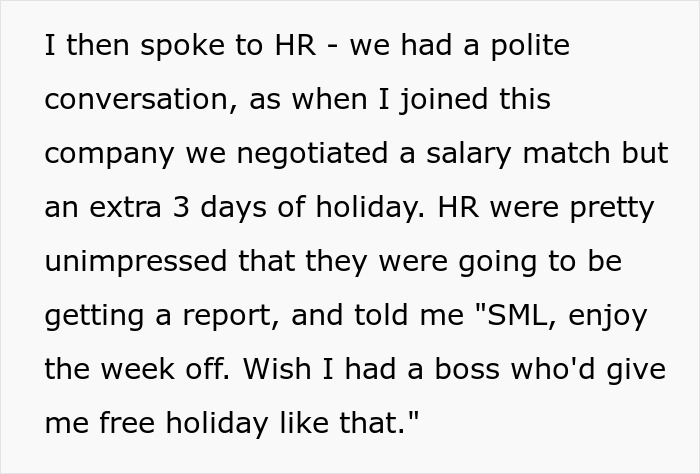
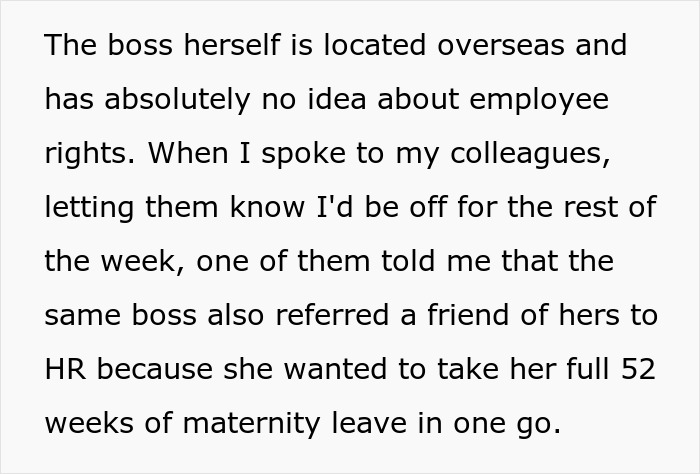

Image credits: FMLitsSML
Well-rested and highly motivated workers are good for the entire business
It’s probably clear to everyone that allowing your employees to use their paid time off is incredibly important. Not only does this set you up as a reliable, trustworthy company that honors its contracts, but it’s in the business’s best interest for everyone to be motivated, happy, healthy, and well-rested.
To put it simply, a healthy work-life balance is a win-win for employees and managers alike. For one, workers who see purpose beyond their jobs and know that they’re being supported no matter what they do are bound to be more loyal to their bosses and stick around longer.
On top of that, people feel energized after spending time with their loved ones, doing the activities that they’re passionate about, and disconnecting from their work emails. And when they get back to the office, they’re more driven, creative, and capable. That leads to better collaboration and results. This, in turn, leads to more profits for the company.
On the flip side, demotivated workers who are stuck in a toxic workplace environment, have to deal with micromanaging and unempathetic bosses, and feel unappreciated are more likely to start looking for better prospects elsewhere. Or they’ll emotionally detach from their jobs, not seeing the point of even trying to do better, leading to a stagnating career and worse results for the company as a whole.
At the end of the day, we’re all responsible for communicating and enforcing our boundaries when it comes to work. If a superior tries to shame you for going on holiday, you can bring the issue you have with this attitude up with them directly, talk to HR, or go speak with their boss. Alternatively, you can reach out to your labor union rep for advice on how best to proceed.
Chronic problems at work can snowball and lead to burnout, which includes exhaustion, cynicism, and inefficacy
If you’re unable to get on the same page and the workplace culture is genuinely toxic, it might be best to start looking for a new job (while also considering taking legal action if your rights as a worker have been breached).
The Harvard Business Review notes that there are three main components to burnout, as determined by psychologist Christina Maslach, from the University of California, Berkeley. These are physical and emotional exhaustion, cynicism, and inefficacy.
Generally, exhaustion lies at the core of burnout. Exhausted employees feel irritable and frustrated and struggle to enforce healthy boundaries both at work and in other parts of their lives. They often find it hard to feel positive about the tasks they have to do at work.
Next, those same employees start to grow more cynical and less engaged at work, distancing themselves from what they do due to unclear expectations, unfair workloads, constant conflict, a lack of meaningful recognition, and a lack of feedback.
The end result? Inefficacy, where the workers notice that their skills aren’t as sharp anymore and they start blaming themselves, thinking that they’re incompetent.
While these three components are often found together, which ones are the most prominent will depend entirely on the person in question and their circumstances.
It’s essential to get proper rest during the work week, not just when you go on vacation
While going on holiday is absolutely fantastic and should be encouraged, getting proper rest during the work week is also vital. Resting after work might not be the same as taking time off, but it has a massive impact on how you feel, how well you perform, and how motivated you are. Sleep deprivation is utterly horrible for your physical, mental, and emotional health.
The Cleveland Clinic notes that sleeping just 1.5 hours less one night already hurts both your immune and cardiovascular systems. Sleep deprivation leads to memory problems, issues with alertness, moodiness, etc.
In the long term, sleep deprivation leads to forgetfulness, slow reaction times, anxiety, and depression, among other things, including a greater risk of developing neurodegenerative diseases.
Big Health suggests that one of the ways you can allow your employees to get better rest and fight back against poor sleep is to have flexible but regular work schedules. That way, your staff can work during their most productive hours while also establishing regular sleep patterns for the best focus and energy.
Meanwhile, managers can promote better work-life balance and boundaries by encouraging their employees to disconnect from work to get proper mental rest. For example, you could discourage late-night emails or working (unpaid) overtime.
Moreover, some companies actually have designated nap rooms where their workers can rest and recharge during the day so they’re more focused. (However, one issue with this is that it can blur the line between work and rest. Not to mention that it’s awkward to sleep at the office.)
What are your thoughts on the entire situation, dear Pandas? Have you ever worked under someone who has had issues with you taking paid time off? How did you handle the situation? What advice would you give people who are completely new to the job industry to help them stand up for themselves and find a proper work-life balance? We’d love to hear from you!
Later, the author shared a few more details about what happened, in the comments of her post
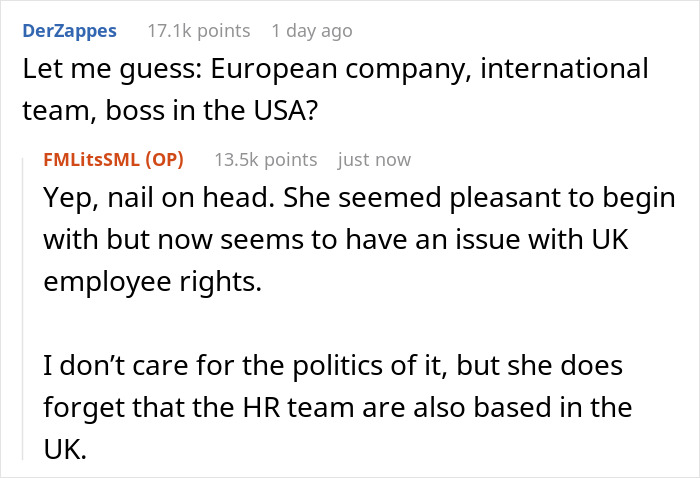
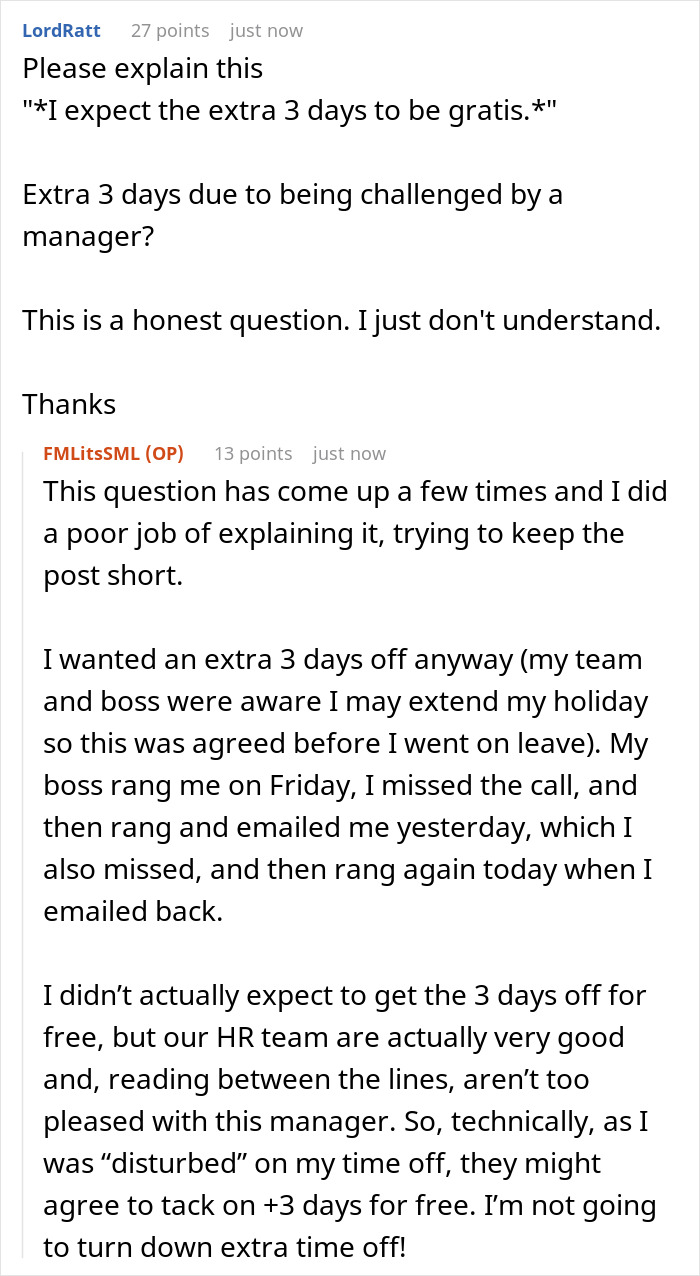
Some readers shared similar stories about holidays and taking paid time off
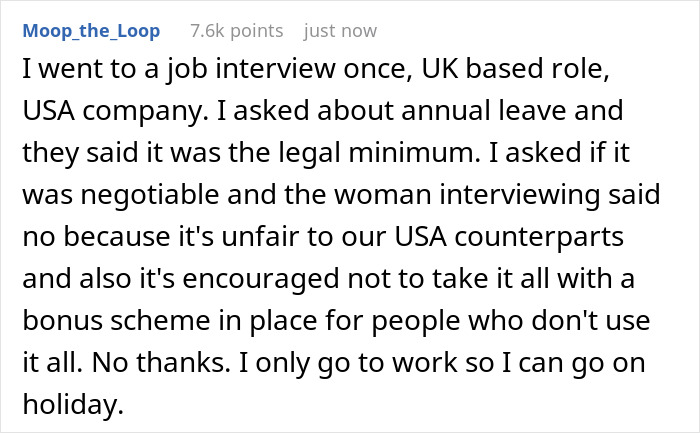
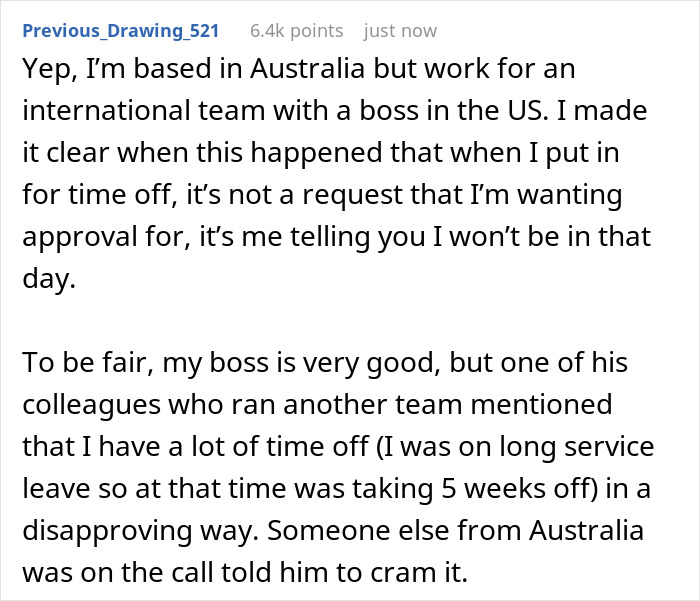

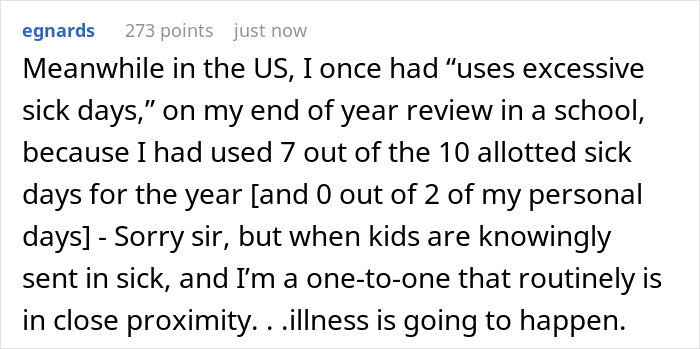
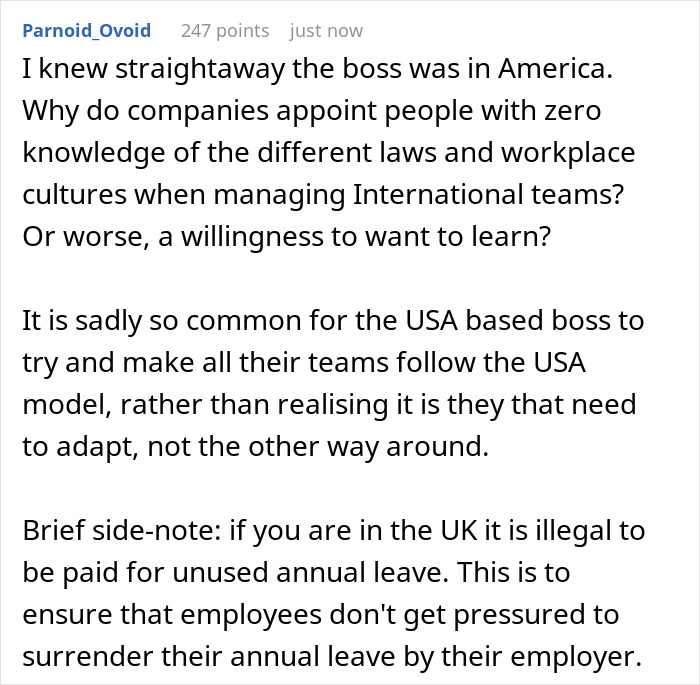
Here’s how some internet users reacted to the mind-boggling situation


